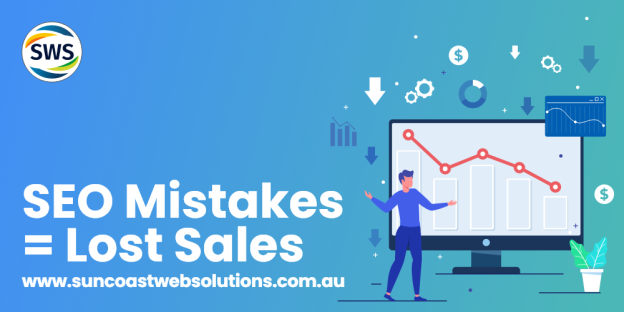The Impact of Google E-E-A-T on Your SEO Rankings

 10th Dec, 2024
10th Dec, 2024
Google E-E-A-T stands for Experience, Expertise, Authoritativeness, and Trustworthiness. This framework is crucial in determining content quality and plays a significant role in SEO rankings. Understanding E-E-A-T can transform your approach to creating online content.
Prioritizing E-E-A-T can lead to long-term success in SEO. High-quality content that aligns with these principles not only enhances user experience but also builds trust. Google’s algorithms favor websites demonstrating clear E-E-A-T attributes, promoting them in search results.
In an era where misinformation proliferates, focusing on E-E-A-T ensures your content stands out. It encourages you to create valuable resources that genuinely help users. By embracing these standards, you position your website for improved visibility and credibility in search engine results.
The Four Pillars of E-E-A-T
- Experience: Personal involvement with the subject matter.
- Expertise: Knowledge or skills within a specific field.
- Authoritativeness: Credibility of the content creator or website.
- Trustworthiness: Providing accurate and reliable information.
Understanding E-E-A-T
E-E-A-T stands for Experience, Expertise, Authoritativeness, and Trustworthiness. This framework is essential for evaluating the quality of online content and plays a significant role in SEO. Understanding each component provides clarity on how to enhance your website’s performance.
Breakdown of Each Component
1. Experience
This refers to the content creator’s personal involvement or direct experience with the subject matter. For topics related to health, finance, and other Your Money or Your Life (YMYL) categories, firsthand experience is crucial. For instance, a medical professional writing about a specific treatment will inherently have more credibility than someone without such experience.
2. Expertise
This denotes a high level of skill or knowledge within a particular field. Content should ideally be crafted by individuals with relevant qualifications or demonstrated knowledge. An expert in digital marketing will provide insights that are both accurate and valuable compared to a novice writer.
3. Authoritativeness
This relates to the reputation of the content creator or website in its industry. Authoritative sources are recognized as credible by peers and users. Websites with established authority can attract more backlinks and engagement, which enhances their search visibility.
4. Trustworthiness
This involves providing accurate, honest, and reliable information consistently. Ensuring website security through HTTPS and clear sourcing enhances trustworthiness. Users are more likely to engage with sites that prioritize transparency and reliability.
Significance of the Updated Framework
In December 2022, Google updated the E-A-T framework to include Experience as an integral component. This change underscores the value of authentic experiences in content creation. As misinformation becomes prevalent online, prioritizing E-E-A-T helps ensure that users receive quality information from credible sources. The evolution of this framework reflects Google’s commitment to enhancing search quality and user trust in digital content.
Difference Between E-E-A-T and E-A-T
The difference between E-E-A-T and E-A-T lies primarily in the inclusion of the “Experience” component, which was added to Google’s framework in December 2022. This change reflects an evolving understanding of what constitutes quality content.
Breakdown of Components
1. Experience
- Represents firsthand involvement with the subject matter.
- Prioritizes content created by individuals who have lived through or directly engaged with the topic.
- Particularly relevant for Your Money or Your Life (YMYL) categories, such as health and finance.
2. Expertise
- Indicates a high level of skill or knowledge within a specific field.
- Content should be authored by qualified individuals who can demonstrate their knowledge effectively.
3. Authoritativeness
- Relates to the reputation of the content creator or website.
- Authoritative sources are recognized within their industries, enhancing credibility.
4. Trustworthiness
- Involves accuracy and reliability in information presented.
- Websites should prioritize security measures (like HTTPS) and maintain transparency regarding their content sources.
Implications for Content Quality Assessment
The introduction of “Experience” shifts how Google assesses content quality. This adjustment emphasizes:
- The importance of personal narratives and lived experiences in enhancing relatability.
- A need for creators to showcase their direct involvement with topics, enriching the authenticity of their content.
This shift means that simply being knowledgeable or authoritative is no longer sufficient. Content must now reflect a genuine connection to the subject matter, especially for sensitive topics that can significantly impact readers’ lives. As a result, websites that fail to integrate this experience aspect risk being ranked lower in search results, making it essential for creators to adapt their strategies accordingly.
The Role of E-E-A-T in Google’s Search Quality Rater Guidelines
Google uses the principles of E-E-A-T to create a strong framework within its Search Quality Rater Guidelines. This framework helps Quality Raters evaluate the quality of content on different websites effectively. By including Experience along with Expertise, Authoritativeness, and Trustworthiness, the evaluation process becomes better.
How Google Uses E-E-A-T to Evaluate Content Quality
Quality Raters are trained to identify and assess content quality based on the E-E-A-T criteria. Each component is crucial in determining how well a piece of content serves its intended audience:
- Experience: Authentic firsthand experience increases credibility, particularly for topics like health or finance.
- Expertise: High skill levels or knowledge ensure that the author can provide reliable and informative content.
- Authoritativeness: Recognition within the industry affirms that the content creator or website is a respected source.
- Trustworthiness: Accurate and honest information fosters user trust, essential for maintaining a loyal audience.
Influence of E-E-A-T on Search Rankings
While E-E-A-T itself does not directly affect rankings, it significantly impacts other ranking factors. Websites demonstrating strong E-E-A-T principles are more likely to rank higher in search results. Key implications include:
- High-quality content aligns with user intent, leading to better engagement metrics such as lower bounce rates and longer session durations.
- Pages lacking adequate E-E-A-T may see diminished visibility in search results, especially if they fall into YMYL categories where trust is paramount.
The focus on E-E-A-T reflects Google’s commitment to combating misinformation and ensuring users receive valuable and trustworthy content. As you optimize your site for SEO, understanding how Google evaluates content through these guidelines can inform your strategies for enhancing your online presence.
Why E-E-A-T Matters More for YMYL Topics

E-E-A-T plays a crucial role in content related to YMYL categories—Your Money or Your Life. These topics often include areas like health and finance, where the consequences of misinformation can be severe. Ensuring high standards of E-E-A-T becomes essential for several reasons:
1. User Safety and Well-being
Content that deals with medical advice, financial planning, or legal matters must come from credible sources. Users rely on this information to make life-altering decisions. For instance, inaccurate health information can lead to serious health risks.
2. Regulatory Compliance
Websites in YMYL categories face scrutiny not only from Google but also from regulatory bodies. Demonstrating expertise and trustworthiness helps these sites comply with industry standards and build user confidence.
Examples of websites that exemplify high E-E-A-T include:
- WebMD: This site provides comprehensive health information authored by healthcare professionals. Its content is reviewed by medical experts, ensuring accuracy and reliability. The secure environment (HTTPS) further enhances user trust.
- AnnualCreditReport.com: As a go-to resource for credit reports, this site adheres to strict guidelines set by the Fair Credit Reporting Act (FCRA). It is recognized as an authoritative source for financial information, bolstering its reputation in the finance sector.
These examples illustrate how effective E-E-A-T can lead to higher rankings and better user engagement. Users are more likely to return to resources they trust, creating a cycle of credibility and authority that benefits both the website and its audience. Prioritizing E-E-A-T in YMYL content is not just beneficial; it is imperative for maintaining integrity and user confidence in today’s digital landscape.
Practical Strategies to Improve Your Website’s E-E-A-T
Improving your website’s E-E-A-T requires a focused approach, especially in showcasing experience in content quality. Here are effective strategies to enhance each aspect of E-E-A-T:
Showcase Personal Experiences
- Incorporate anecdotes: Share relevant personal stories that demonstrate firsthand involvement with the subject matter. This adds authenticity and allows readers to connect with your content on a personal level.
- Create detailed case studies: By presenting real-life examples, you can illustrate the effectiveness of your advice or recommendations. Case studies not only highlight expertise but also reinforce trustworthiness.
- Include author bios: Detailed biographies showcasing qualifications and experiences related to the subject can enhance credibility. Highlight relevant achievements and areas of expertise.
Leverage User-Generated Content
- Encourage testimonials: Positive feedback from users can serve as powerful endorsements. Displaying user testimonials prominently builds trust and showcases real-world experience with your products or services.
- Facilitate reviews: Allow customers to leave reviews on your site. This interaction fosters community engagement and provides potential customers with insights into their peers’ experiences.
- Host forums or Q&A sections: Creating spaces for users to share their experiences adds valuable content while enhancing the “experience” aspect of E-E-A-T. It demonstrates that you value user input and fosters a sense of belonging within your audience.
Prioritize Authenticity
- Be transparent about sources: When citing information, link back to credible sources. This practice not only reinforces trustworthiness but also showcases thorough research efforts.
- Maintain consistent updates: Regularly update existing content to reflect new findings or changes in the industry. This commitment shows that you are actively engaged in providing accurate and timely information.
Implementing these strategies effectively enhances firsthand involvement in your content, establishes authority, engages your audience, and ultimately contributes to improved SEO rankings through better alignment with Google’s E-E-A-T framework.
Demonstrating Expertise, Authoritativeness, and Trustworthiness Online

Establishing expertise, authoritativeness, and trustworthiness (E-E-A-T) is crucial in today’s digital landscape. Google emphasizes these elements to evaluate content quality effectively. Here are key strategies to enhance your presence online:
1. Content Creation by Qualified Individuals
Ensure that content is authored by individuals with relevant qualifications or industry experience. For instance, a medical article should ideally be written by a healthcare professional rather than a generalist. This approach not only boosts credibility but also aligns with Google’s emphasis on E-E-A-T.
2. Building Reputation
Develop a strong reputation within your industry through various means:
- Networking: Engage with other professionals in your field. Attend conferences, webinars, and workshops to connect with peers and share knowledge.
- Public Speaking: Participate in speaking engagements to establish yourself as a thought leader. This visibility can enhance your authoritativeness.
- Guest Blogging: Write articles for reputable websites within your niche. Contributing valuable insights helps build your reputation and links back to your own site, reinforcing authority.
3. Showcasing Achievements
Highlight any certifications, awards, or recognitions related to your field on your website. This transparency builds trust with potential users who seek reliable information.
4. User Reviews and Testimonials
Encourage satisfied customers or readers to leave positive reviews. Displaying testimonials prominently can reinforce trustworthiness and illustrate the value of your expertise.
5. Engaging with Your Audience
Respond to comments, questions, or feedback from users. Active engagement demonstrates commitment to providing accurate information and enhances user trust.
By focusing on these strategies, you create an environment where users feel confident in the information provided. The integration of expertise, authoritativeness, and trustworthiness not only fulfills Google’s E-E-A-T criteria but also fosters long-term relationships with your audience.
Enhancing Trustworthiness Through Reliable Information and Secure Websites
Enhancing trustworthiness in SEO is essential for building a strong online presence. Users must feel confident that the information they receive is accurate and reliable. Here are key strategies to ensure trustworthiness:
1. Accuracy and Honesty
Prioritize creating content that is well-researched and factual. Utilize credible sources to back up your claims. Erroneous information can lead to user distrust, which negatively impacts your site’s reputation. Always fact-check your content before publication.
2. Citing Sources
Transparency enhances credibility. Whenever you reference studies, statistics, or expert opinions, provide clear citations. This practice not only bolsters your claims but also allows users to verify the information.
3. User Reviews and Testimonials
Encourage users to share their experiences with your products or services. Positive feedback from real customers enhances trustworthiness. Displaying reviews prominently can influence prospective visitors’ perceptions.
Website security plays a crucial role in establishing trustworthiness:
4. Importance of HTTPS
The HTTPS protocol encrypts data exchanged between users and your website. This encryption protects sensitive information, making it difficult for unauthorized parties to access it. Google favors sites with HTTPS, which can positively impact SEO rankings.
5. Trust Seals and Certifications
Displaying recognized trust seals (e.g., SSL certificates) can reassure users about website security. These visual indicators create an immediate sense of safety for visitors, encouraging them to engage more with your content.
By focusing on accuracy in content creation and implementing robust security measures, you build a solid foundation of trust with your audience. As users navigate the web searching for reliable information, integrating these elements into your strategy becomes vital for achieving long-term success in SEO rankings.
The Impact of AI on Content Quality: Challenges and Future Implications

The integration of AI in content creation presents notable challenges for maintaining quality and adhering to Google E-E-A-T standards. Key risks include:
- Low-Quality Content: AI-generated content often lacks the depth of experience and expertise, leading to generic or inaccurate information. This can negatively affect your SEO performance, as search engines prioritize high-quality, reliable content.
- Misinformation: The potential for spreading misinformation increases with the use of AI. Content that is not fact-checked or vetted can harm user trust and tarnish a website’s reputation.
Google actively addresses these issues by:
- Quality Evaluation: Google employs sophisticated algorithms to detect low-quality content. Sites that fail to meet E-E-A-T guidelines may face demotion in rankings.
- Updating Guidelines: Continuous revisions to the Search Quality Rater Guidelines ensure that AI-generated content is scrutinized effectively, emphasizing the need for genuine expertise and trustworthy sources.
Navigating the landscape of AI in content creation necessitates vigilance. Upholding E-E-A-T principles becomes crucial as you strive to create valuable, authentic content. Prioritizing quality over quantity will ultimately lead to stronger SEO performance and greater audience trust.
FAQs (Frequently Asked Questions)
What is E-E-A-T and why is it important for SEO?
E-E-A-T stands for Experience, Expertise, Authoritativeness, and Trustworthiness. It is crucial for SEO as it helps in evaluating content quality, which can lead to improved search rankings and long-term success.
How does E-E-A-T differ from the previous E-A-T framework?
The main difference is the addition of ‘Experience’ in the E-E-A-T framework. This component emphasizes the importance of firsthand involvement and personal experiences in content creation, enhancing overall content quality assessment.
Why is E-E-A-T particularly significant for YMYL topics?
E-E-A-T is especially important for Your Money or Your Life (YMYL) topics like health and finance because these areas require high levels of trust and expertise due to their potential impact on users’ lives. Websites like WebMD exemplify high E-E-A-T standards.
What strategies can I implement to improve my website’s E-E-A-T?
To enhance your website’s E-E-A-T, focus on showcasing personal experiences in your content, encourage user-generated content, and ensure that your information is accurate and reliable. Collaboration with qualified industry experts can also boost your site’s authority.
How does Google utilize E-E-A-T in its Search Quality Rater Guidelines?
Google employs E-E-A-T within its Search Quality Rater Guidelines to assess the quality of content. This framework influences how search rankings are determined by prioritizing content that demonstrates high levels of experience, expertise, authoritativeness, and trustworthiness.
What challenges does AI present regarding content quality in relation to E-E-A-T?
AI poses challenges such as the risk of producing low-quality or misleading content, which can negatively affect SEO performance. Google addresses these issues by implementing measures to combat misinformation and uphold the standards set by E-E-A-T.
we are your one-stop internet marketing solution on the sunshine coast!

 07 5479 3888
07 5479 3888









